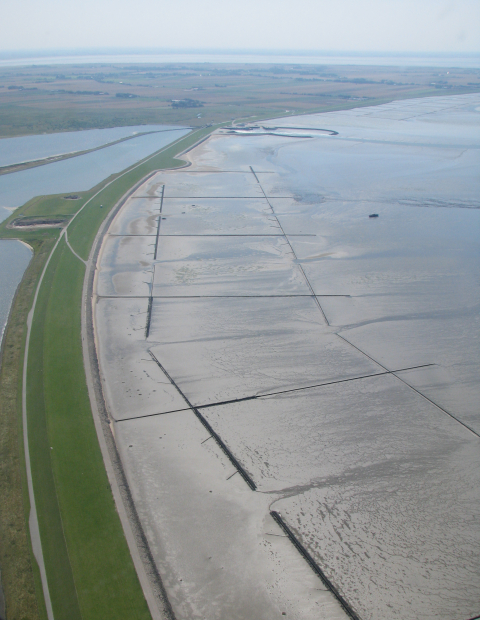Spatenrecht
- 06. April 2017 - General, Germany, Knowledge
Dikes are characteristic for the German North Sea coast. They were used not only for flood protection but for land reclamation as well. According to this the statement „Deus mare, Frisio litora fecit“ (God created the sea, the Frisian created the coast) can be understood. Flood protection is very important untill today. In February we referred to the storm flood in 1962. But who is and was responsible for the preservation of the dikes?
Even small damages can lead to the failure of a dike. A very important part of dike law is therefore the Deichlast or Deichpflicht. This is the obligation to look after and pay for the construction and maintenance of the dikes.
Today the construction of dikes in Germany is a joint task of the federal government and the federal states. The Deichlast is assumed by dike associations and the costs are shared under all landowners in the dike protected areas. Sometimes there is an obligation to help with the conservation as well.
In the past, every landowner was responsible for the dike that belonged to his land. That could be the dike that directly bordered their land or a dike section that was determined by the size of their owned land.
The realization of the Deichlast was forced in a hard way. Who wouldn’t or couldn’t take care of his dike section, would lose his land according to the phrase „De nich wul dieken, mut wieken!” (Who doesn’t want to work on his dike, has to give way/move). The so called Spatenrecht (spade law) provided that if a spade was put into a dike section, the land was ownerless. Whoever pulled it out again received the land, but also accepted the obligations. The landowner was able to abandon his land in the same way voluntarily.
Especially in areas that were flooded often or that had long dikes but a comparatively small amount of land, the Deichlasten were heavy burdens and not always manageable in the long term. Enforced or voluntary surrender probably wasn’t rare. Especially if due to floods a considerable part of the property was lost.
By the way, the name of Hamburgs district Spadenland comes from the old dike law, the Spadelandsrecht.


0 comments